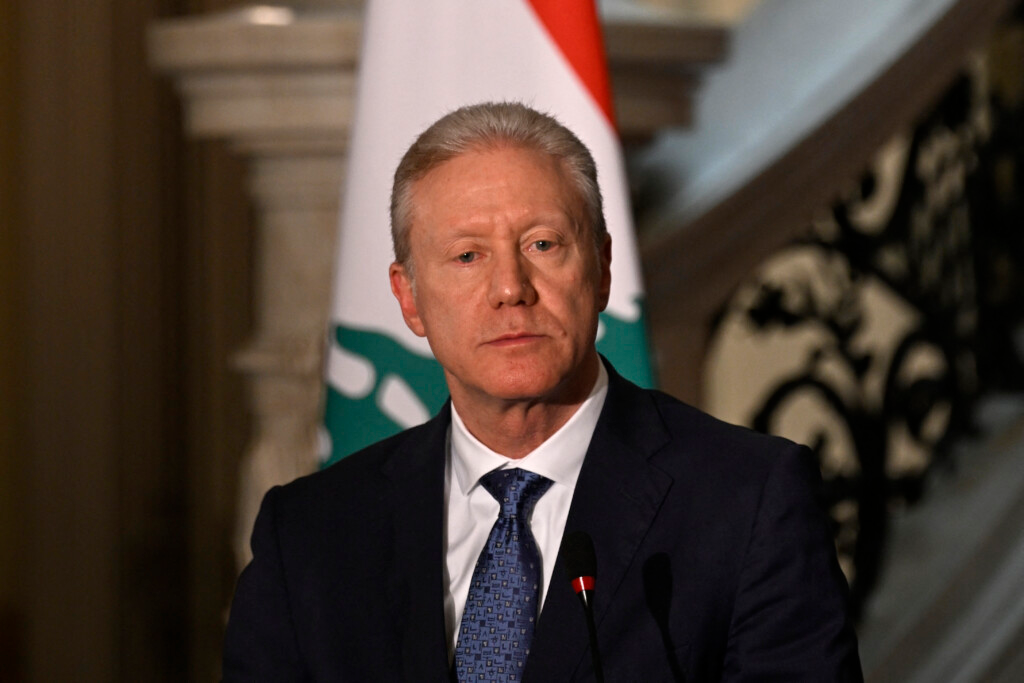
Latest Developments
Lebanon Tells Iran to Abide by Diplomatic Norms: Lebanese Foreign Minister Youssef Raggi had rejected “foreign interference” following criticism from Iranian Ambassador Mojtaba Amani over evolving plans that may lead to the disarmament of Tehran’s Hezbollah proxy. Amani, who was wounded during Israel’s “exploding pager” operation in September 2024, called the initiative “a clear conspiracy against nations.” Raggi responded that Lebanon “reject[s] any foreign interference in our internal affairs. We support positive neutrality, mutual respect for sovereignty, and shared Arab interests.”
Aoun Says State Monopoly Arms ‘Fundamental’ to Peace: Lebanese President Joseph Aoun said on April 20 that a state monopoly on bearing arms, which would necessarily preclude Hezbollah from operating, is a “sensitive, delicate issue” but one “that is fundamental to preserving civil peace.” The Lebanese army announced on April 20 that it had thwarted a rocket attack against Israel — the first such publicized intervention since the November 2024 ceasefire between the two countries.
Congressman Meets With Syrian Transitional President: The interim government in Syria — which, like its Lebanese neighbor, is also facing Iranian proxies operating on its territory — has cracked down on Hezbollah terrorists who backed the deposed regime of former President Bashar al-Assad. Following a meeting in Damascus with interim President Ahmad al-Sharaa, U.S. Rep. Cory Mills (R-FL) said the Syrian leader had told him that “under the right conditions,” Damascus would be prepared to join the “Abraham Accords” bloc of Arab states that have normalized relations with Israel. Mills said that he presented Sharaa with a list of conditions the new Syrian government must fulfill for the United States to lift sanctions, including the destruction of chemical weapons left over from the Assad regime.FDD Expert Response
“The state of Lebanon is slowly, but surely, asserting its sovereignty over the Hezbollah terrorist organization. The change in policy is not consistent or linear, but Lebanon’s incremental steps toward freeing itself from Hezbollah and Iran’s nefarious grip are certainly moving the country in the right direction.” — Hussain Abdul-Hussain, Research Fellow
“Sharaa’s statements regarding normalization should be treated with caution. He’s desperate to lift sanctions, but what happens if he succeeds? Will he double down on his one-man rule? Will he give safe haven to jihadists? Will he pivot toward U.S. adversaries who offer him more? These are the questions U.S. and Israeli policymakers can’t afford to ignore.” — Ahmad Sharawi, Research Analyst
“While calling out the Iranian ambassador for his comments is a step in the right direction, its significance should not be overblown, as previous Lebanese governments have done the same, albeit rarely. Such actions ultimately proved cosmetic and did not indicate any changes in Beirut’s relationship with Iran’s proxy, Hezbollah. What’s more significant is that Hezbollah continues to rebuild its capabilities in Lebanon and pledges never to disarm. Meanwhile, actual pushback from Beirut is paltry as Aoun insists on bilateral dialogue with Hezbollah over its private arsenal.” — David Daoud, Senior Fellow
